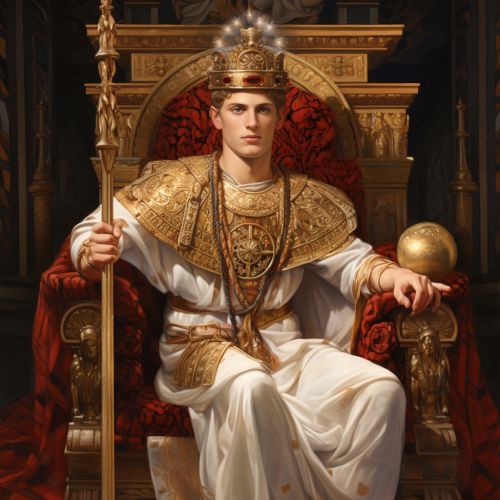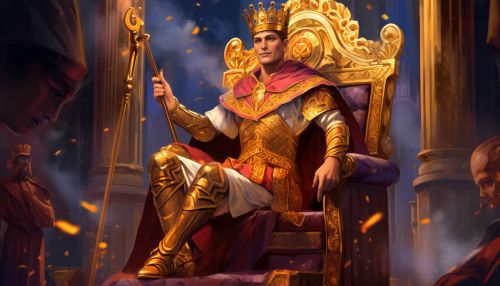Emperor
Definition and Origin
An Emperor is a monarch, usually the sovereign ruler of an empire or another type of imperial realm. The term derives from the Latin "Imperator," a title originally granted to victorious Roman generals by their troops and subsequently appropriated by the rulers of the Roman Empire. Read more about the Roman Empire here.
Historical Overview
Emperors have been prominent figures throughout history, ruling over some of the largest and most influential empires. The concept of an emperor as a monarchical ruler can be traced back to the ancient civilizations of Rome and China.


Roman Emperors
The first Roman Emperor was Augustus, who transformed the Roman Republic into the Roman Empire in 27 BC. The Roman Emperors ruled over a vast territory that encompassed the Mediterranean Sea and stretched from the British Isles to the Near East. The Roman Empire was a significant political and cultural force in the ancient world, influencing the development of art, architecture, law, and language in regions far beyond its borders.
Chinese Emperors
In China, the title of Emperor was first used during the Qin Dynasty, with Qin Shi Huang being the first Chinese Emperor. The Chinese Emperors ruled over a unified China, implementing a centralized bureaucracy and legal code that formed the basis of the Chinese state. The Chinese Emperors were considered the "Son of Heaven" and held a divine mandate to rule.
Role and Functions
The role and functions of an emperor can vary greatly depending on the specific historical and cultural context. However, there are some common elements that can be identified.
Political Role
Emperors typically hold the highest political authority in their realms. They often have the power to make laws, declare war, negotiate treaties, and appoint officials. In many cases, the emperor's authority is considered absolute, with no legal constraints on their power.
Religious Role
In many cultures, emperors also hold a significant religious role. They may be considered divine or semi-divine figures, with a special relationship to the gods or the spiritual realm. This religious role often serves to legitimize the emperor's political authority and to reinforce social hierarchies.
Decline of Emperors
The concept of an emperor has declined in modern times, with few countries retaining this form of government. This decline can be attributed to a variety of factors, including the rise of nationalism, the spread of democracy, and the impact of globalisation. However, the legacy of emperors continues to influence contemporary politics and culture.
